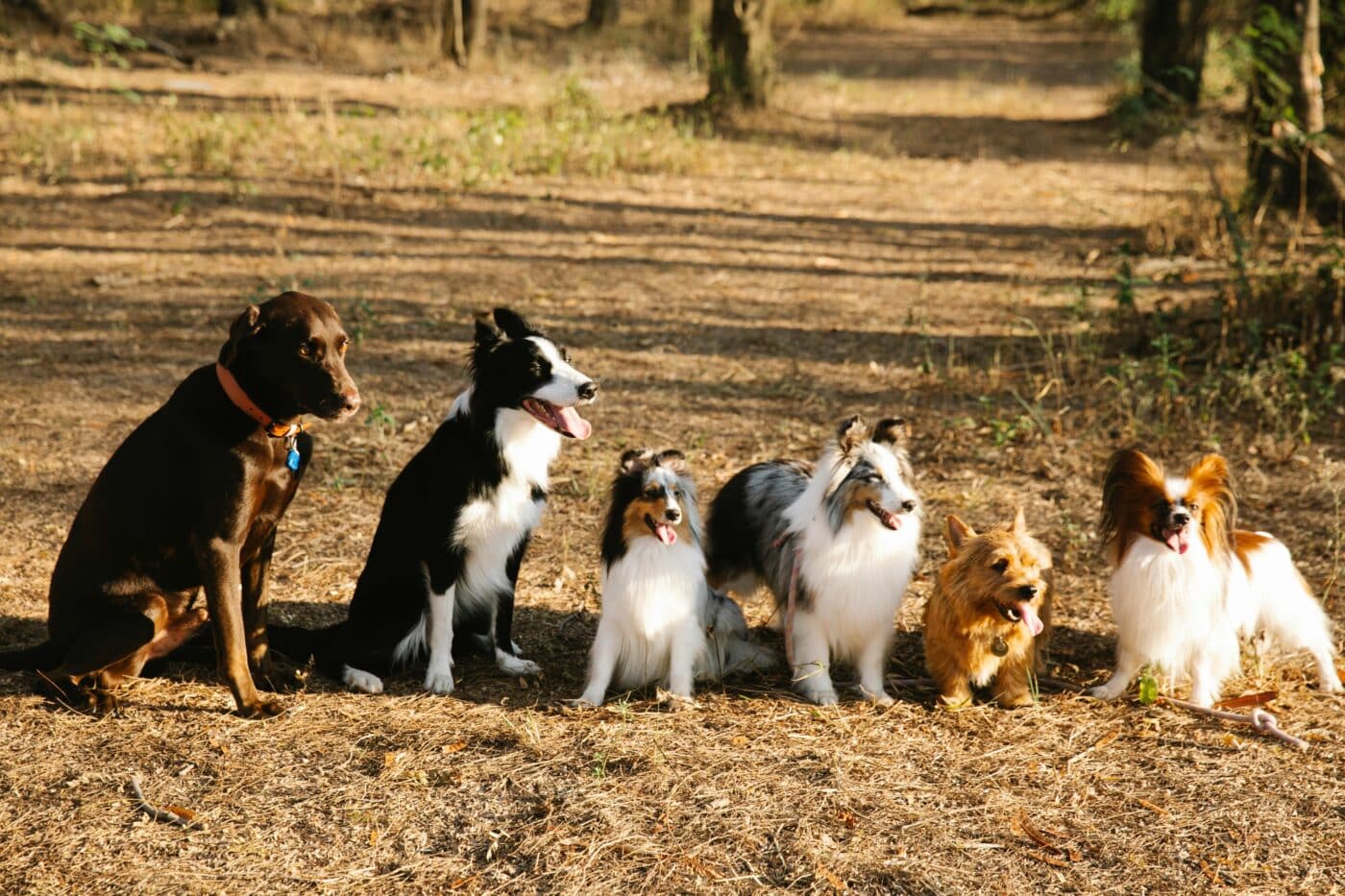 Shutterstock
Shutterstock
Some dog breeds form deep bonds with humans, seeking affection and attention from their owners at every opportunity. However, other dog breeds have a natural affinity for their fellow canines, preferring the company of dogs over people. These dogs thrive in multi-dog households or environments where they can socialize with their kind, and their pack mentality runs deep. While they still form strong relationships with humans, their love for interacting with other dogs often outweighs their need for human companionship.
Siberian Husky
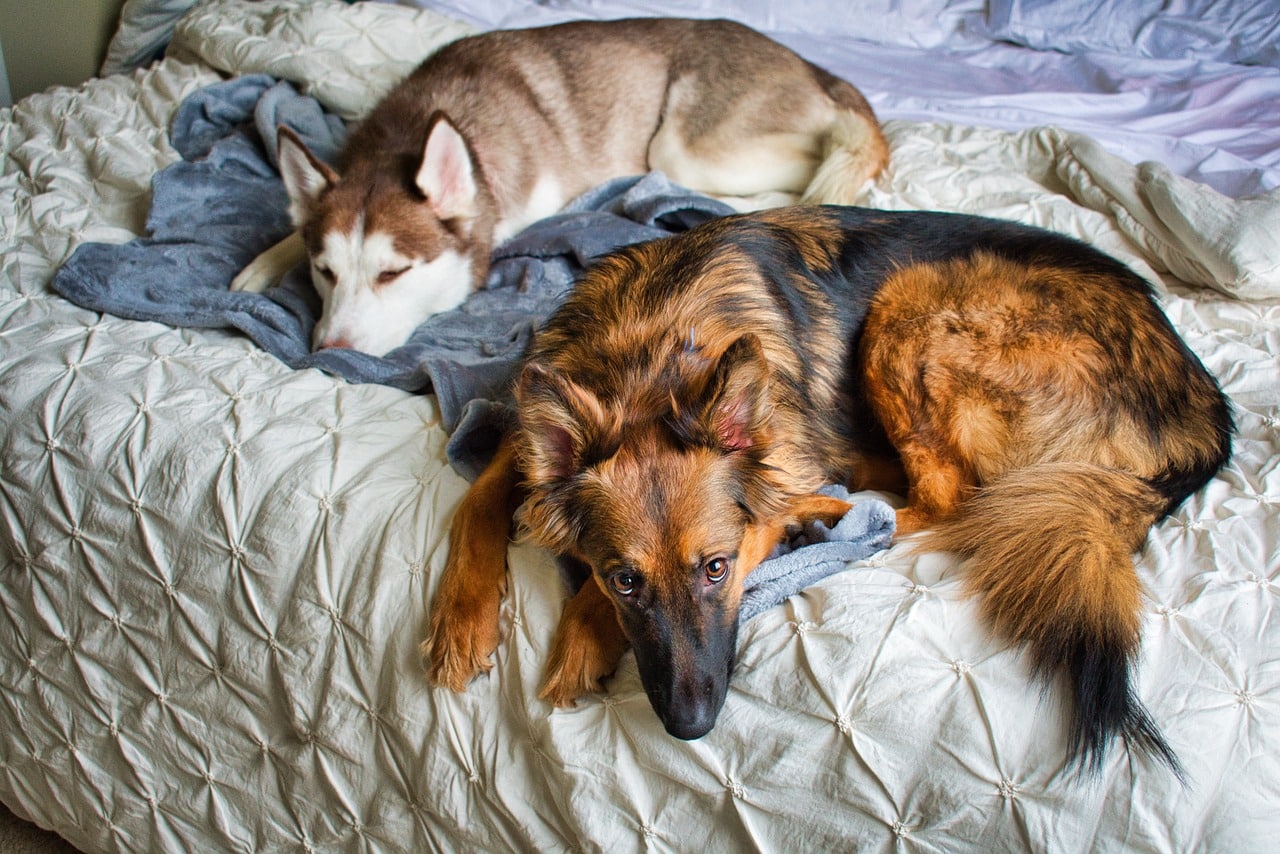 Shutterstock
Shutterstock
Siberian Huskies are known for their independent and energetic nature, which makes them ideal pack dogs. Bred to pull sleds in groups, Huskies have a strong affinity for teamwork and the company of other dogs. This breed often prefers the excitement and energy of being around fellow canines, and they thrive in environments where they can run and play with their pack. While Huskies are still affectionate with their humans, they tend to bond more with their dog companions, often treating them as equals. Their playful, spirited demeanor is best matched with other dogs that can keep up with their energy.
Alaskan Malamute
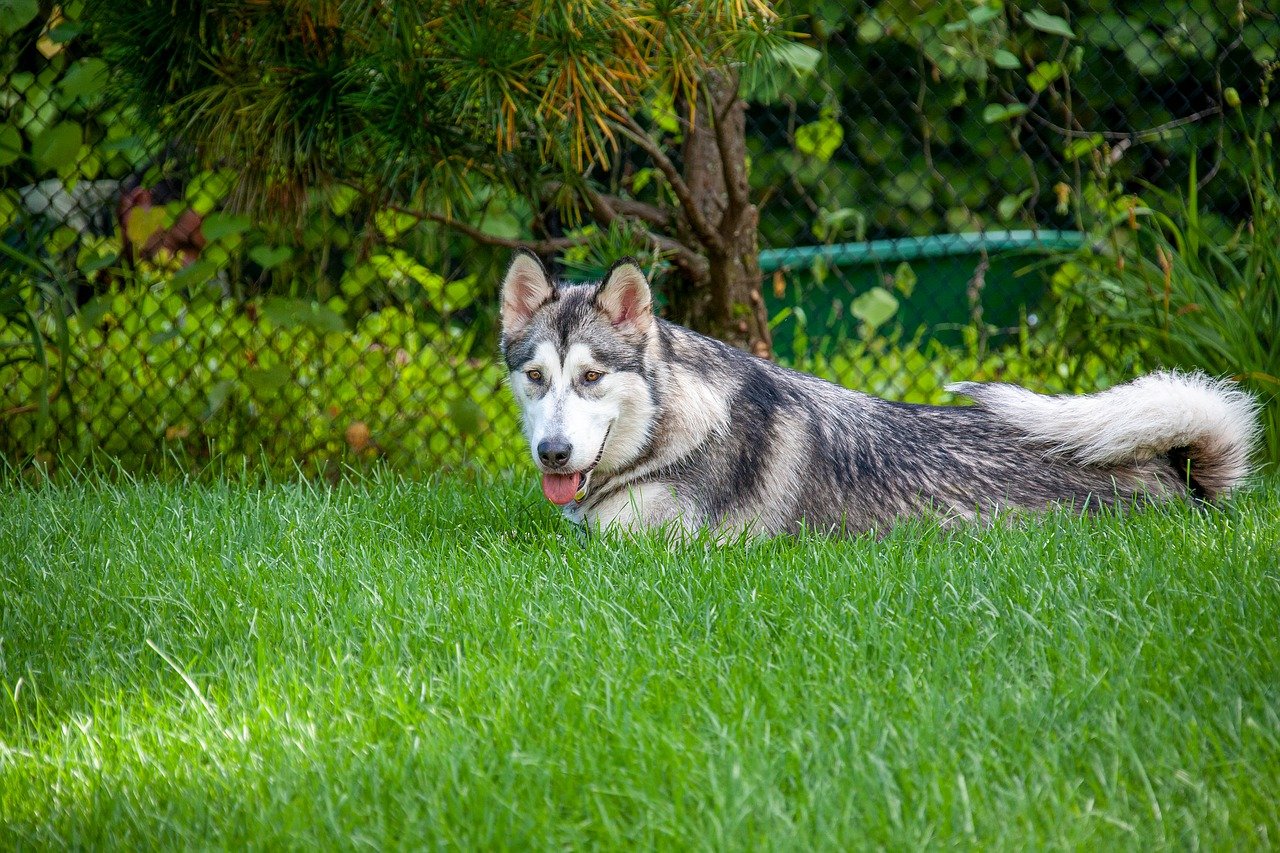 Shutterstock
Shutterstock
Like their close relatives, the Siberian Huskies, Alaskan Malamutes were also bred to work in packs, pulling heavy sleds across vast distances in extreme conditions. Their natural instinct is to be part of a team, and they often form strong bonds with other dogs. Malamutes are highly social and enjoy the company of fellow canines, often preferring their furry friends over human attention. Although loyal to their families, they can be aloof with strangers and are more comfortable in a pack setting. Malamutes love playing, running, and socializing with their canine companions, making them ideal for homes with multiple dogs.
Border Collie
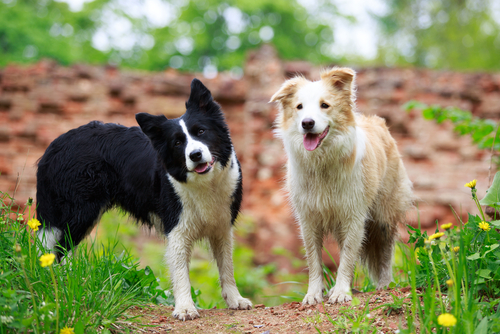 Shutterstock
Shutterstock
Border Collies are incredibly intelligent and energetic dogs that thrive in environments where they can work alongside other dogs. Bred for herding, they naturally tend to interact with and manage groups of animals, including dogs. Border Collies love to play games that mimic herding behaviors, such as chasing and corralling their fellow dogs. While they are loyal and affectionate toward their human families, their drive to engage with other dogs is strong. Border Collies do best in homes where they can socialize with other canines and enjoy the mental stimulation that comes from group play.
Beagle
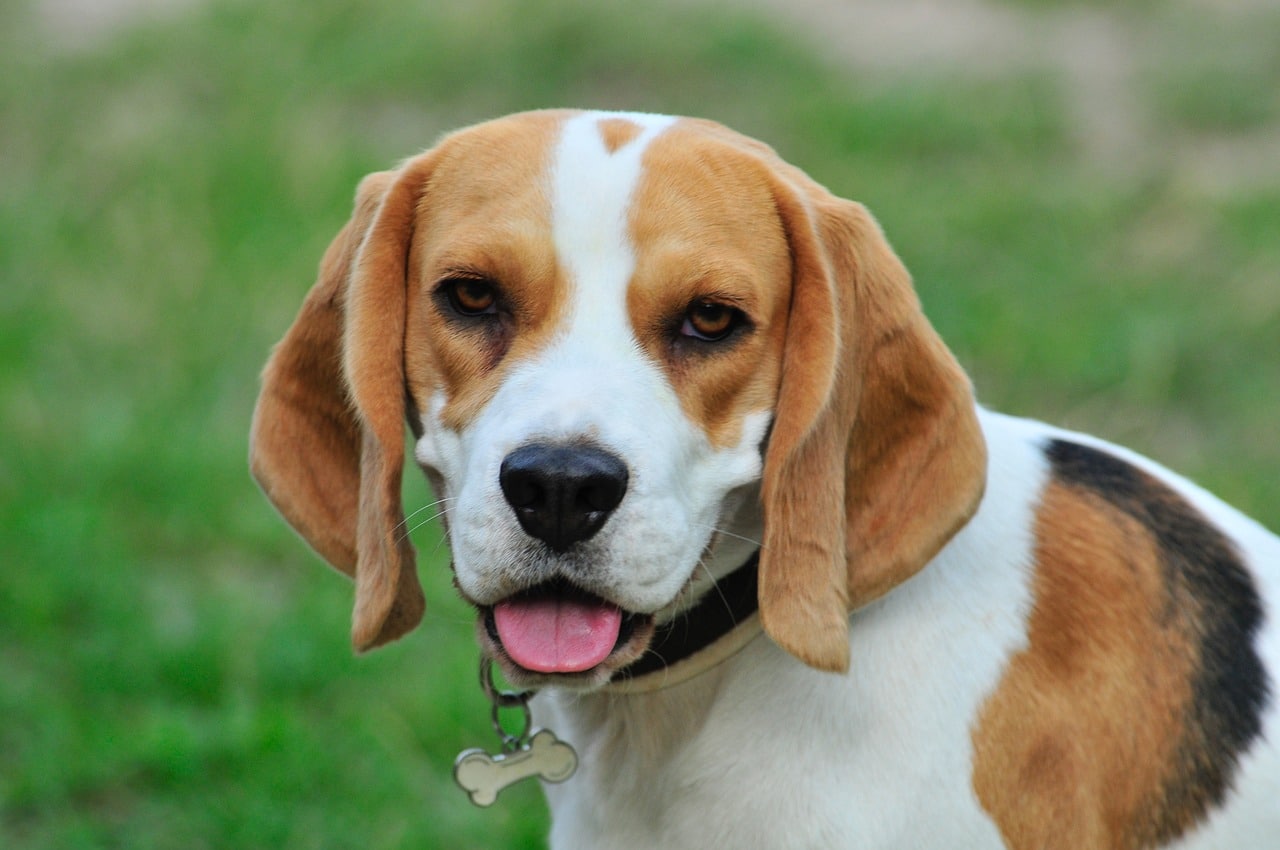 Shutterstock
Shutterstock
Beagles are natural pack animals with a history of hunting in groups. Bred to work as scent hounds, they rely on the companionship of other dogs to accomplish their tasks. Beagles are happiest when they are part of a pack and often prefer the company of other dogs over humans. Their friendly, social nature makes them excellent companions for multi-dog households, and they enjoy activities that involve teamwork, like tracking or chasing. While Beagles are affectionate and loving toward their humans, their strong pack mentality means they often form closer bonds with their fellow dogs.
Irish Wolfhound
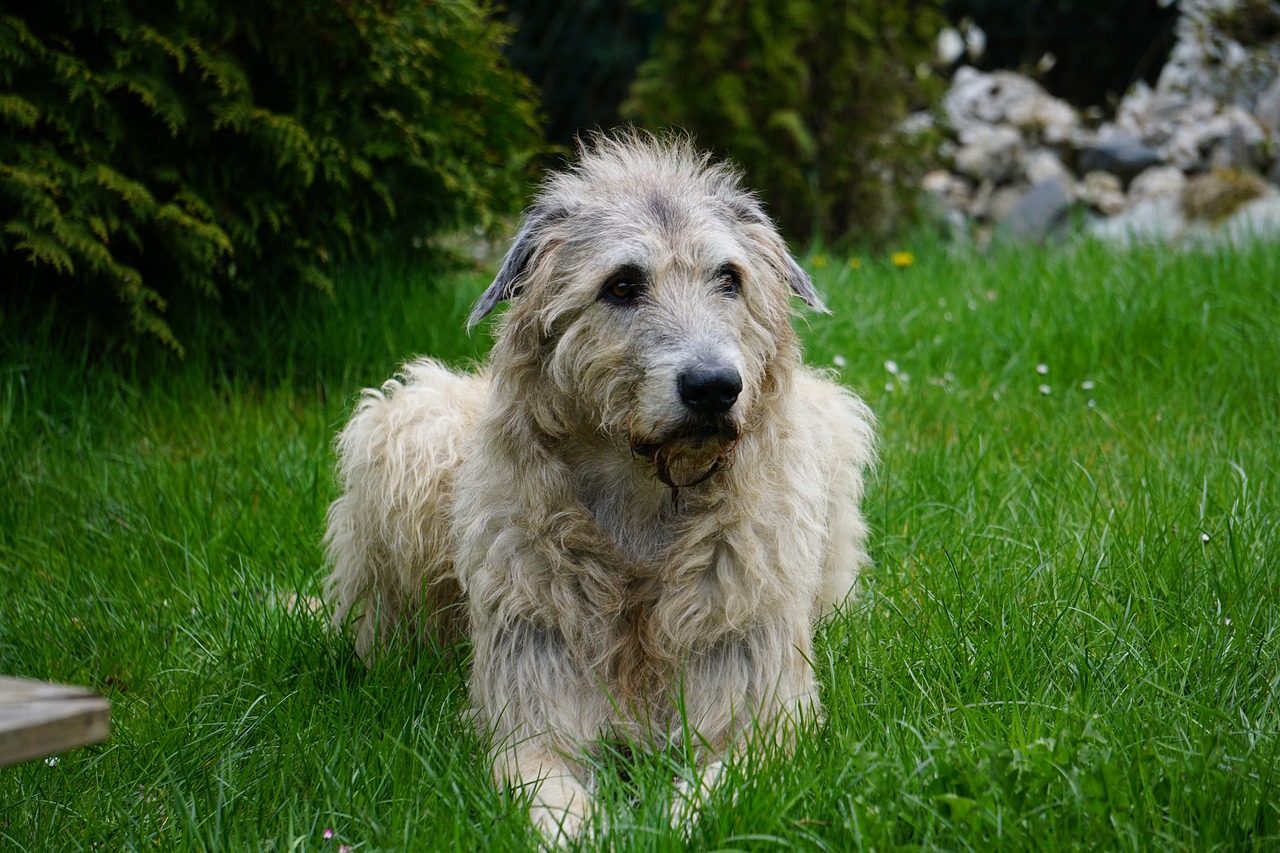 Shutterstock
Shutterstock
Irish Wolfhounds may be large, gentle giants, but they deeply connect to their fellow canines. Originally bred as hunting and guard dogs, Irish Wolfhounds have a natural pack instinct that makes them more comfortable in the company of other dogs. Despite their size, they are known for being calm and easygoing, especially around other dogs. Irish Wolfhounds bond quickly with their furry companions and enjoy running, playing, or simply lounging together. While affectionate with their human families, they often seem more at ease when surrounded by dog friends.
Afghan Hound
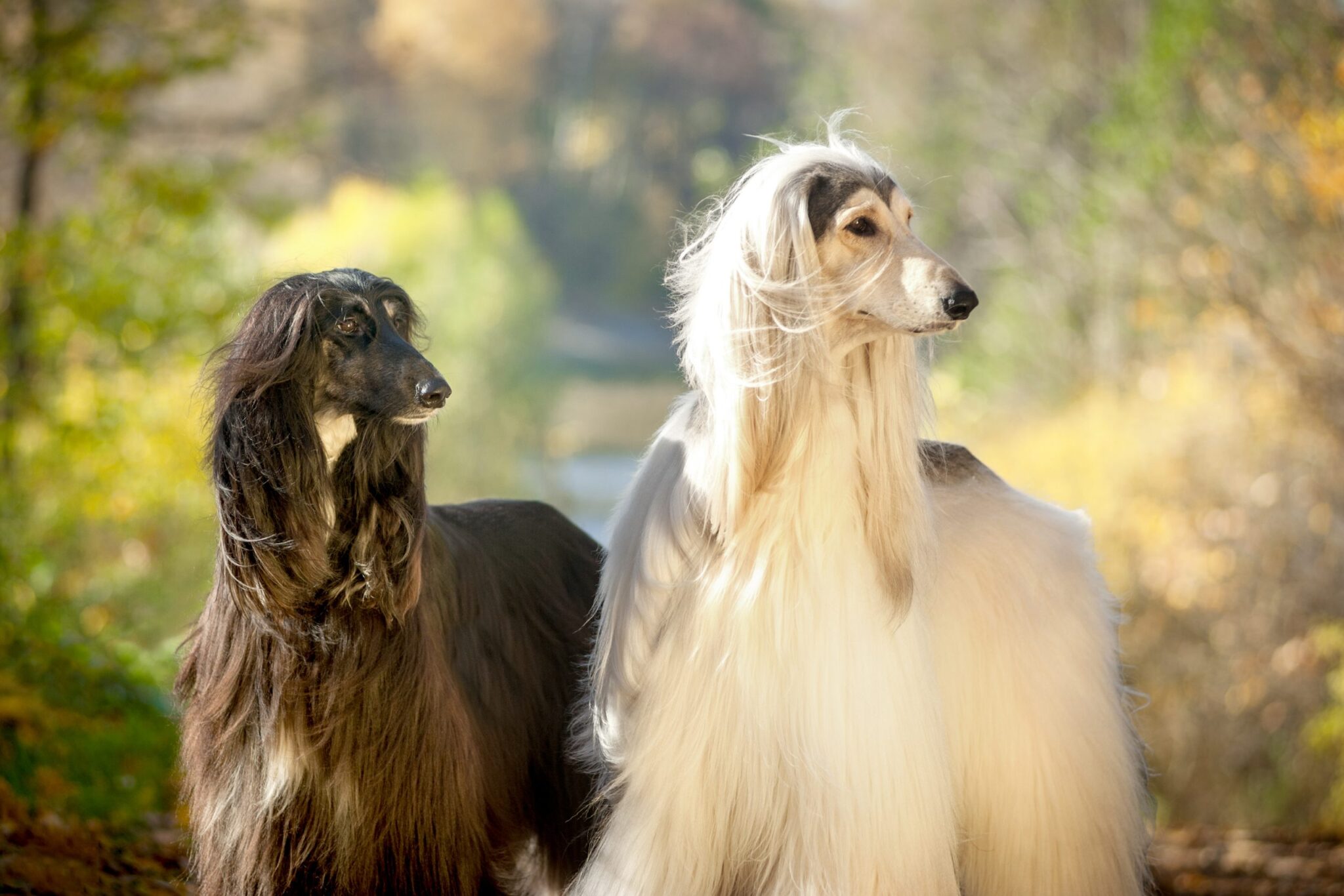 Shutterstock
Shutterstock
Afghan Hounds are known for their aloof and independent personalities, often preferring the company of other dogs to that of humans. Bred to hunt in packs, Afghan Hounds have retained their natural affinity for working alongside their canine counterparts. While they can be affectionate with their families, they are generally reserved and prefer the companionship of other dogs, particularly in outdoor settings where they can run and explore. Afghan Hounds are happiest when they are part of a group, and their independent nature makes them less reliant on human attention for emotional fulfillment.
Basset Hound
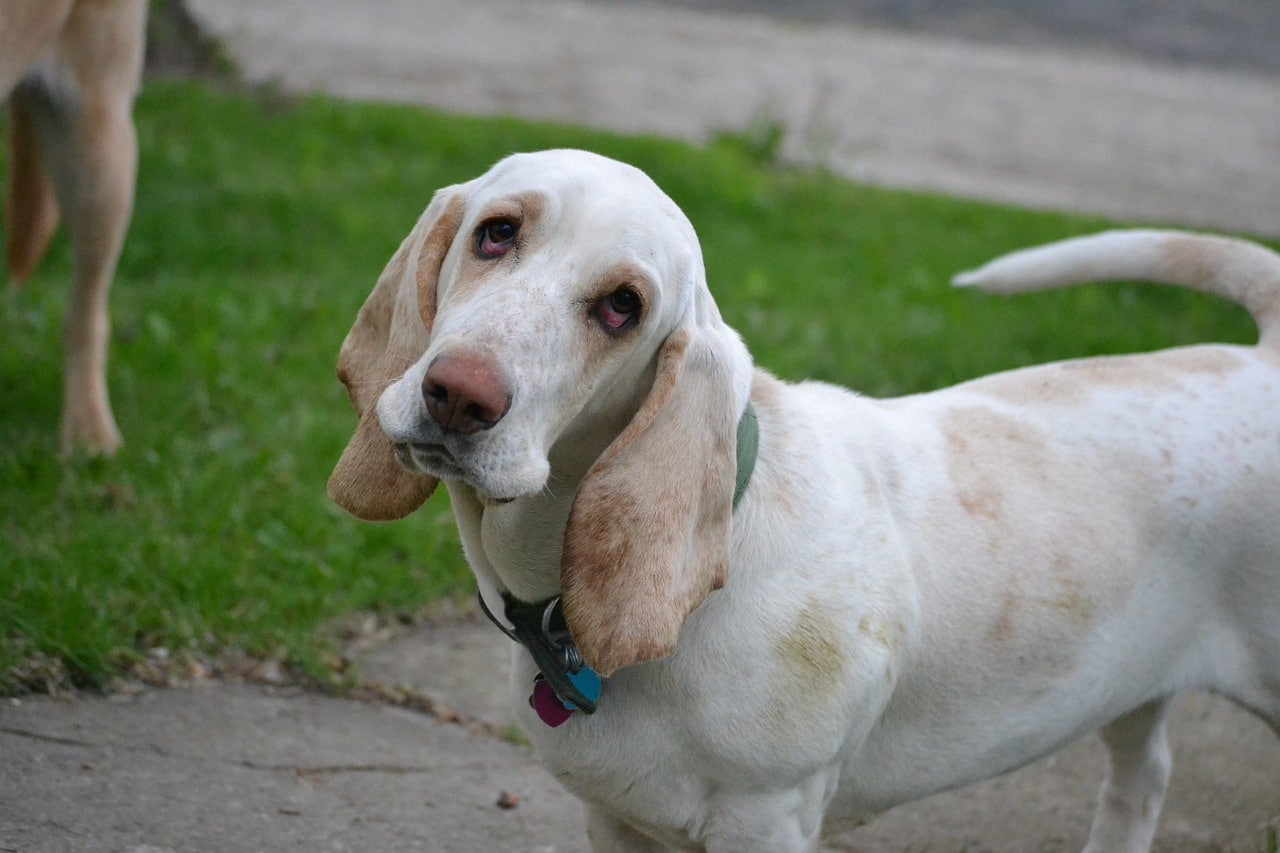 Shutterstock
Shutterstock
With their strong scenting abilities and hunting background, Basset Hounds are natural pack animals. They were bred to work alongside other dogs, using their incredible sense of smell to track game in groups. As a result, Basset Hounds often prefer the company of other dogs and enjoy socializing in pack settings. While affectionate and loving toward their human families, Basset Hounds tend to form stronger bonds with their fellow dogs. Their laid-back, easygoing nature makes them ideal companions for homes with multiple pets, and they thrive in environments where they can interact with other canines.
Greyhound
 Shutterstock
Shutterstock
Greyhounds are known for their speed, elegance, and gentle nature, but they also strongly prefer the company of other dogs. Bred for racing and hunting in groups, Greyhounds naturally enjoy working and playing with their fellow canines. They often form close bonds with other Greyhounds, and many thrive in homes with multiple dogs. While they can be affectionate and loyal to their human families, Greyhounds are often more content when they have a furry friend to share their time with. Their calm and reserved demeanor around people contrasts with their playful interactions with other dogs.
Bloodhound
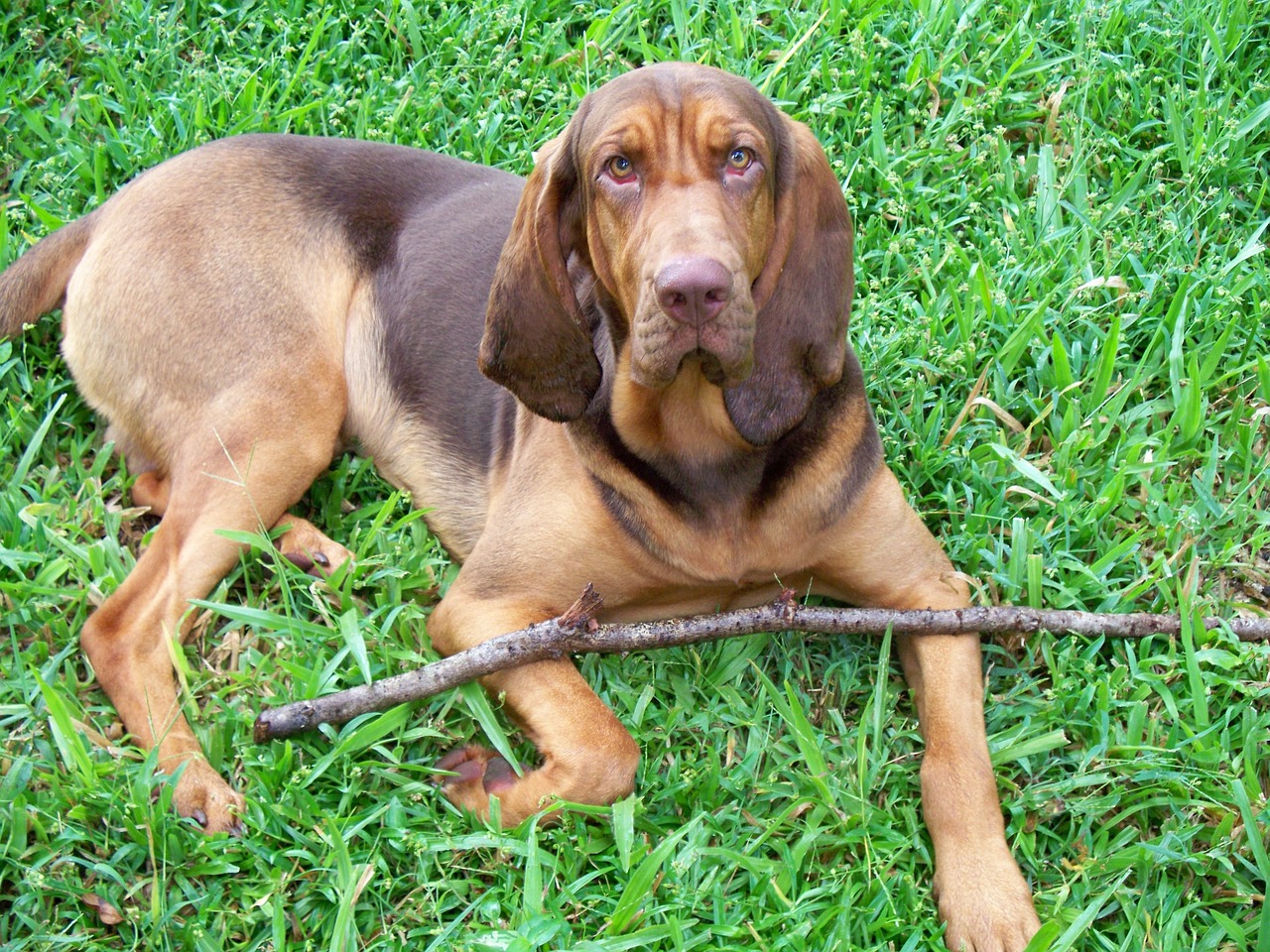 Shutterstock
Shutterstock
Bloodhounds are famous for their exceptional sense of smell and have a long history of working in packs to track scents over long distances. This pack mentality has carried over into their social behavior, and Bloodhounds often prefer the company of other dogs over humans. They enjoy activities that involve teamwork, such as scent games or group walks, and they thrive in environments where they can interact with other canines. While Bloodhounds are gentle and affectionate with their human families, their strong bond with other dogs makes them more comfortable in multi-dog households.
Australian Shepherd
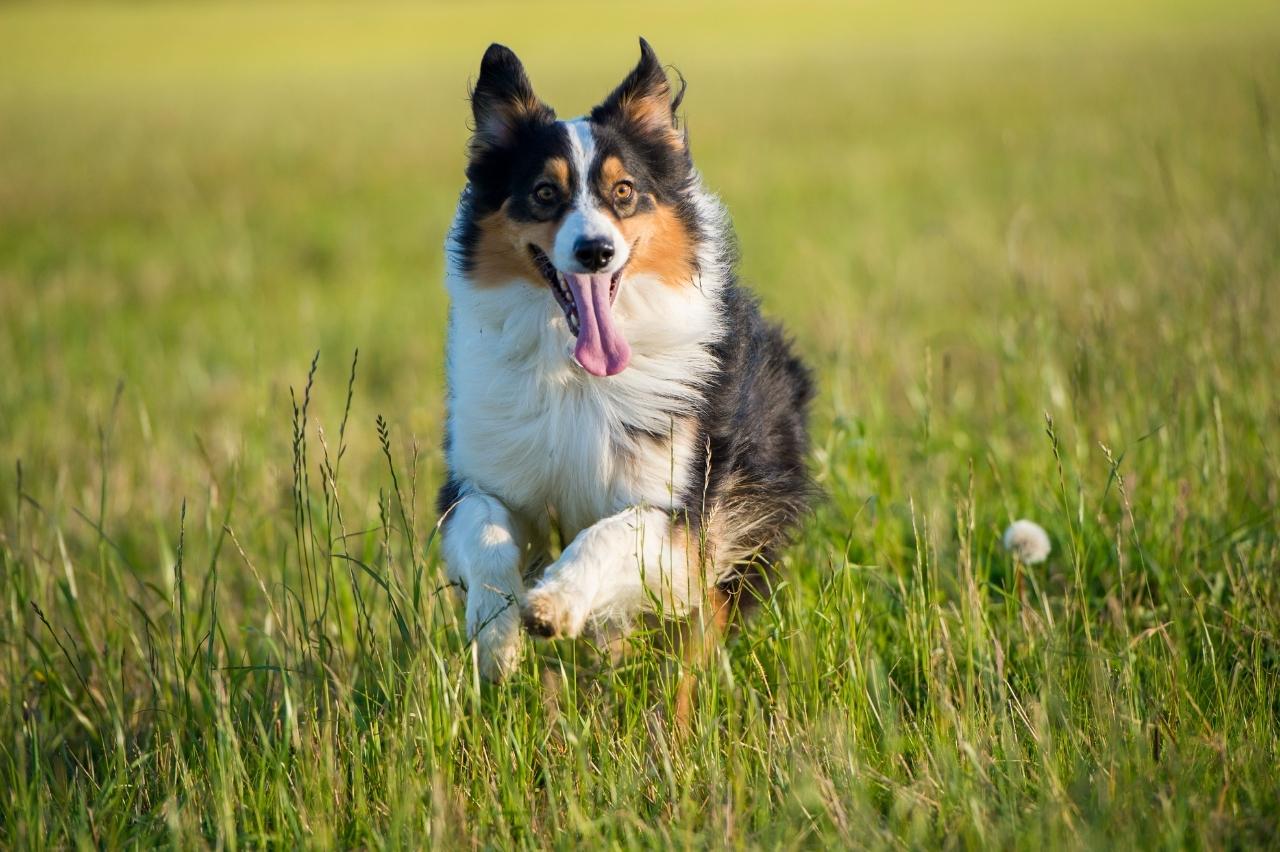 Shutterstock
Shutterstock
Australian Shepherds are intelligent, energetic working dogs bred to herd livestock in groups. This natural herding instinct extends to their interactions with other dogs, and they often enjoy the company of fellow canines. Australian Shepherds are happiest when they have a job, especially if it involves working or playing with other dogs. Their independent nature means they are less reliant on human companionship and often form stronger bonds with their furry friends. Australian Shepherds thrive in environments where they can interact with other active, high-energy dogs.
Rhodesian Ridgeback
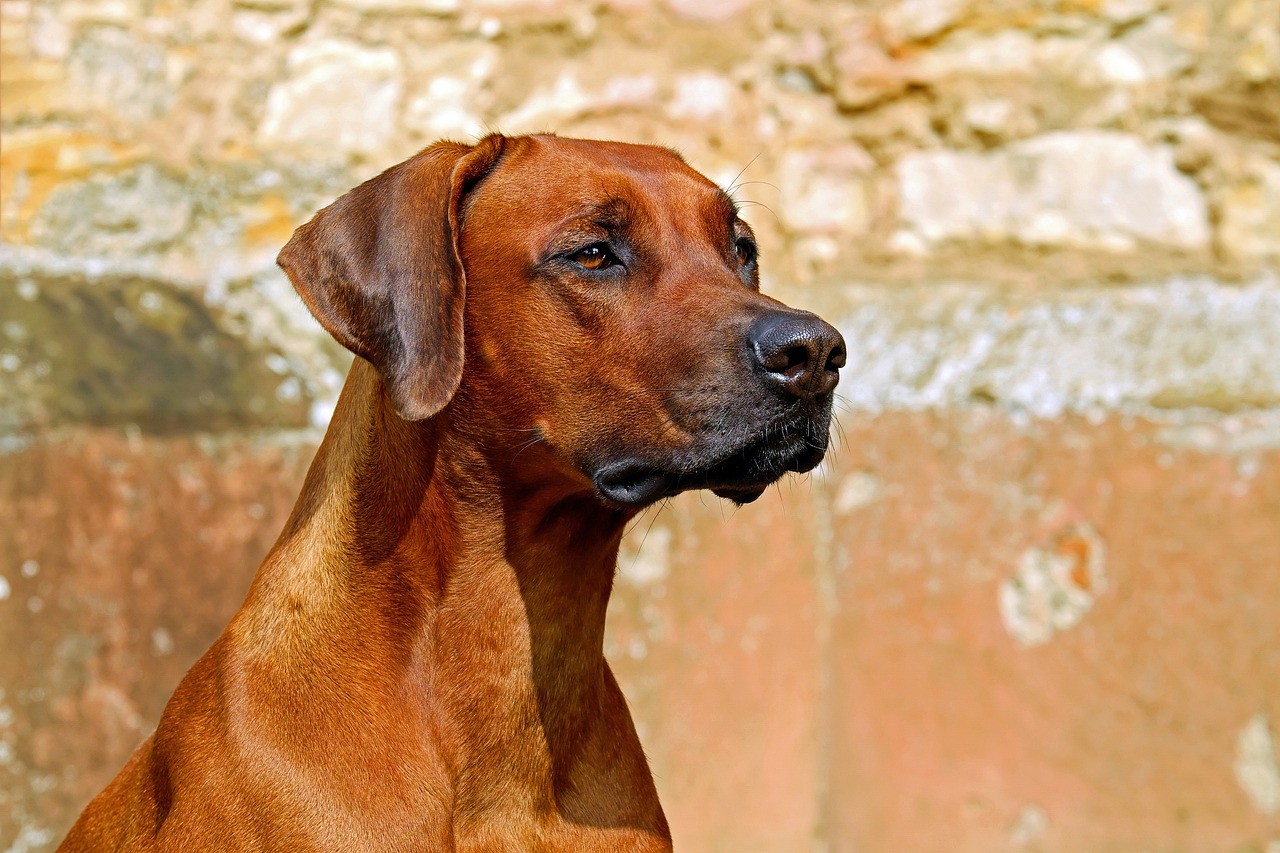 Shutterstock
Shutterstock
Rhodesian Ridgebacks are powerful, independent dogs originally bred to hunt large game in groups. Their natural pack instinct makes them more comfortable in the company of other dogs, and they often prefer interacting with their canine companions over spending time with humans. While Rhodesian Ridgebacks are loyal and protective of their families, they thrive in environments where they can socialize and play with other dogs. Their independent nature means they don’t require constant human attention, but they enjoy the camaraderie of being part of a pack.
When It Comes to Playdates, These Dogs Say “Yes to Paws, No to Hoomans”
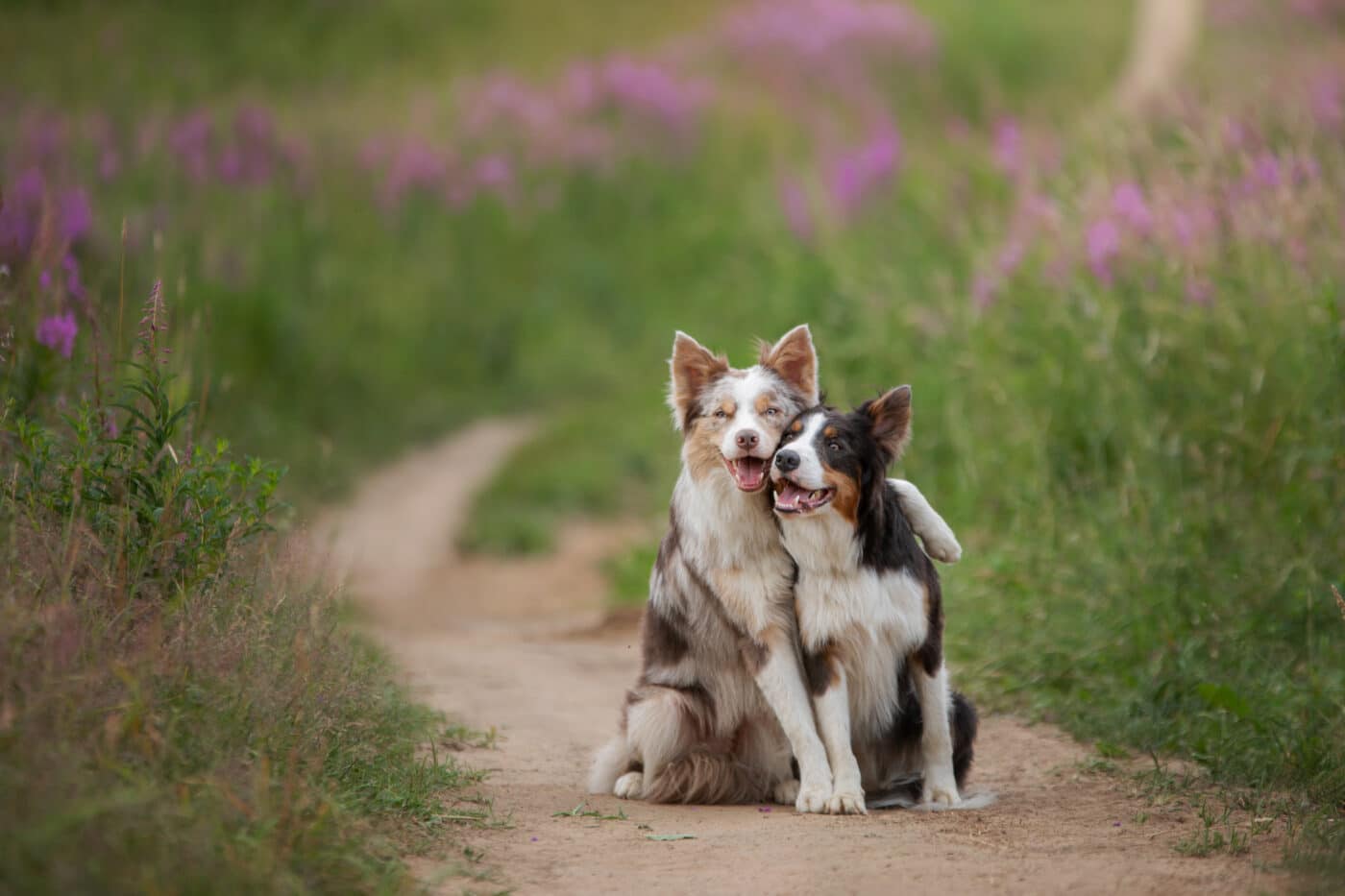 Shutterstock
Shutterstock
While many dogs bond closely with humans, these breeds naturally prefer the company of other dogs. From the independent Siberian Husky to the sociable Beagle, they thrive in pack settings, enjoying herding, playing, or hanging out with fellow canines. These breeds tend to form stronger connections with other dogs than people, making them ideal for multi-dog households or situations with frequent canine interaction. If you’re seeking a dog that loves spending time with other pups more than humans, these breeds are a great fit!
 Toledo, United States.
Toledo, United States.